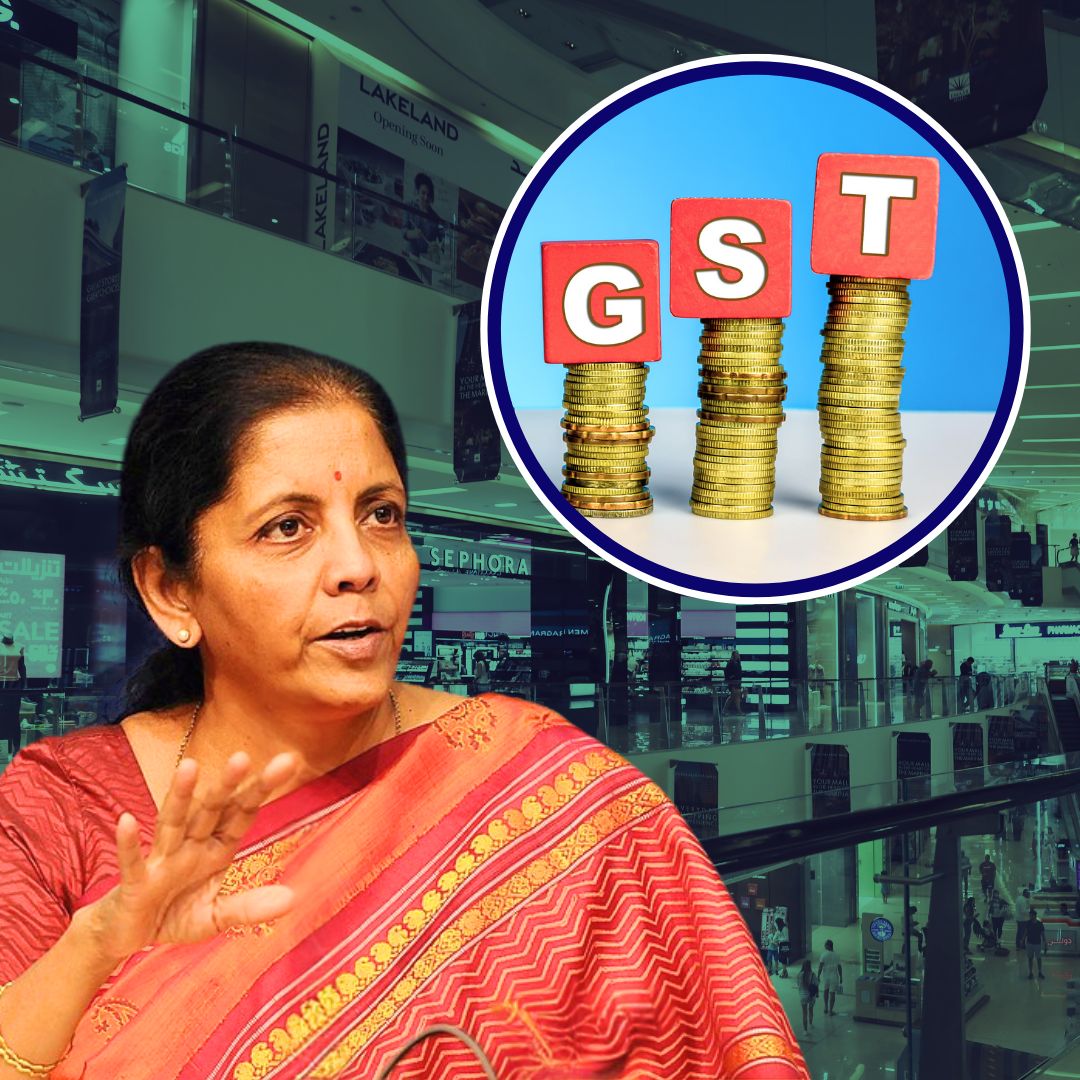The Goods and Services Tax (GST) 2.0 reforms came into effect on September 22, 2025 – the first day of the Navaratri, implementing a major overhaul of India’s indirect tax system by merging four previous slabs into two primary slabs of 5% and 18%, along with a 40% slab for sin goods. Led by Finance Minister Nirmala Sitharaman, the reforms aim to simplify taxation, boost consumption, and ease compliance.
Essential goods like household items, dairy products, and stationery are now taxed at 5%, making them cheaper, while many electronics and automobiles have moved to the 18% slab. Sin goods such as tobacco, alcohol, and online gaming remain in a higher 40% tax bracket. These changes are expected to benefit consumers, MSMEs, and the wider economy, ahead of the festive season.
Simplified GST Structure: What Consumers Gain
The consolidation into a 5% slab for essential goods and 18% slab for most others is designed to reduce costs for daily-use products and aspirational buys. Items like toothpaste, soaps, packaged foods, bicycles, and affordable apparel are now taxed lower, benefiting middle-class households with monthly savings.
Household appliances such as air conditioners, refrigerators, and televisions, as well as construction materials like cement, have moved from 28% to 18%, making them more affordable. The automobile industry sees a significant boost with small cars and two-wheelers subjected to the 18% slab, potentially reviving demand. Insurance premiums may also see tax reductions, improving financial protection coverage.
What’s Getting Cheaper
Essential household products moving from 12% to 5% GST slab:
- Toothpaste, soaps, shampoos
- Packaged foods like biscuits, snacks, juices
- Dairy items such as ghee and condensed milk
- Bicycles and stationery
- Apparel and footwear under a certain price point
Household appliances and electronics moving from 28% to 18% slab:
- Air conditioners
- Refrigerators and dishwashers
- Large-screen televisions
- Cement (important for construction and housing)
Automobiles with reduced tax rates:
- Small cars (engine under 1,200cc) from 28% to 18%
- Two-wheelers moving to lower slab
- Insurance premiums potentially lowered to boost financial coverage
My address to the nation. https://t.co/OmgbHSmhsi
— Narendra Modi (@narendramodi) September 21, 2025
What Remains Expensive: The Sin Tax and Exceptions
Despite the cuts, certain goods maintain higher tax rates. Luxury and sin goods like tobacco products, alcohol, pan masala, online betting, and gaming platforms have been assigned a 40% GST slab. Petroleum products remain outside GST jurisdiction, so fuel prices remain unaffected.
Similarly, luxury items such as diamonds and precious stones continue to attract higher duties. These measures aim to discourage consumption of harmful products while balancing government revenue needs.
Sin goods taxed at 40% GST slab:
- Tobacco products
- Alcohol
- Pan masala
- Online betting and gaming platforms
- Petroleum products remain outside GST, so no change in fuel prices
- Luxury goods such as diamonds and precious stones continue attracting high taxes
The Logical Indian’s Perspective
The GST 2.0 reforms reflect a forward-looking effort to streamline taxation while easing the financial burden on everyday consumers and supporting economic sectors vital for growth and employment.
By simplifying compliance and reducing costs on essentials and aspirational goods, the reforms promote inclusiveness and economic empowerment. However, balancing growth with social responsibility through higher sin tax rates demonstrates a nuanced approach to policy.
Marking the commencement of the #NextGenGST as #GSTBachatUtsav PM @narendramodi ji’s address to the nation had several messages. Unfortunate, that despite a positive and direction-setting address, our opposition party @INCIndia and its SM eco-system spread negativity and baseless…
— Nirmala Sitharaman (@nsitharaman) September 21, 2025










